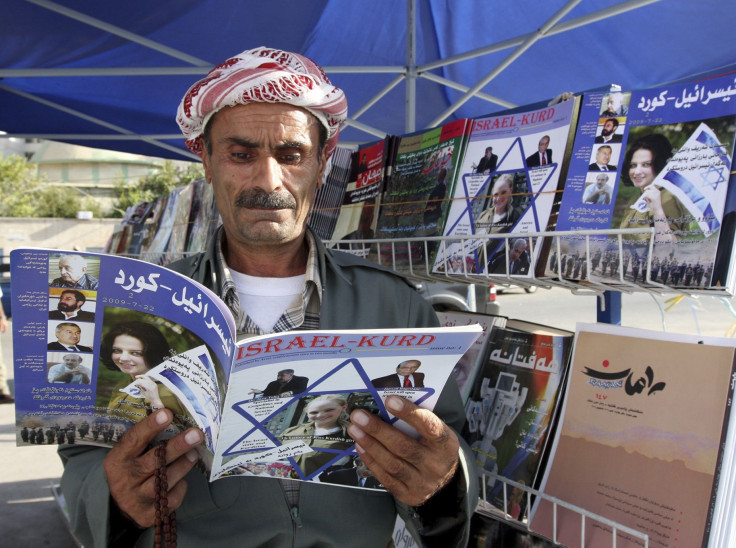Iraqi Kurdistan's First Jewish Leader Wants To Revitalize Judaism And Boost Israel-Ties, But Challenges Lie Ahead

Iraqi Kurdistan's first Jewish official has high hopes for reviving Jewish life in the autonomous northern Iraq region. He'd like to see a synagogue opened in every town, and he'd also like to see better ties between the Kurds and Israel, he told the Israeli newspaper Haaretz. But various challenges lie ahead, not the least of which is that almost all of Iraq's Jews have left the country.
Sherzad Omer Mamsani was designated the country's Jewish representative as part of a government program to promote religious coexistence, said Mariwan Naqshbandi, who leads an office to promote religious tolerance, according to a Haaretz report Wednesday. The Kurdish parliament passed a law in May that established seven departments dealing with religious minorities, including Baha'i, Zoroastrians and Yazidis. The move was a bold one in a region that has generally been seen as hostile toward minorities, and particularly Jews since the establishment of Israel in 1948.
Kurdistan, a land with no Jews names Jewish affairs rep https://t.co/YRPafwlauM pic.twitter.com/VzIspwTk1Q
— Haaretz.com (@haaretzcom) October 21, 2015
There are 200,000 to 300,000 Jews of Kurdish origin, but most of them today live in Israel, Naqshbandi said. He said there were around 200 or 300 Jewish families who remained in Iraqi Kurdistan and officially converted to Islam under pressure, but secretly continued to observe Jewish traditions. Small pockets of Jews remain across the Middle East outside Israel, with the largest communities in Turkey and Iran.
Mamsani, the individual now representing Kurdish Jews, said his family has Jewish ancestors. He has made it part of his life's mission to strengthen Kurdish ties with Israel, publishing a local magazine called Israel Kurd and leading an organization under the same name. He has posted pictures on Facebook proudly posing with Israeli soldiers during one of his several visits to Israel, and another of him standing in front of the Western Wall, the Jewish holy site in Jerusalem. In 1997, he published a book on Kurdish-Jewish relations. The publication reportedly angered some locals, and led to a bombing that caused Mamsani to lose his arm.
Jew appointed to official position in Iraqi #Kurdistan
http://t.co/5eqzaBndGP
#TwitterKurds #Jews #Israel #Iraq #Kurds #Kurdish #peace #USA
— Mewan Dolamari (@MewanDolamari) October 19, 2015Mamsami said the fight the Kurds are now waging against the Islamic State group, also known as ISIS, is likely to weaken support for radical Islam, opening the way for a better relationship between Kurds and Israel. Iraqi Kurdistan's military force, the peshmerga, are fighting against ISIS with support from Western governments. Most Kurds are also Sunni Muslims, but most reject the radical message espoused by ISIS militants.
Plans to revitalize the Jewish community have not been without controversy. Naqshbandi said there were some religious leaders opposed to Mamsani’s plans, and the Iranian consul has reportedly protested.
The plans come as Israel has strengthened economic and military ties with the Iraqi Kurds in recent months. About three-quarters of Israel's oil is reportedly imported from Iraqi Kurdistan, and Israel is believed to have provided secret assistance and training to the peshmerga, Haaretz reported.
“Kurdistan has no problems with other cultures or religions. The Kurds love Israel, and Israel supports our state,” Mamsani said.
© Copyright IBTimes 2025. All rights reserved.





















